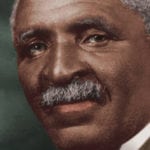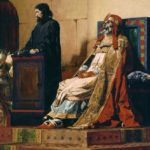 Politics
Politics  Politics
Politics  Weird Stuff
Weird Stuff 10 Eggs-traordinarily Odd Eggs
 History
History 10 Desperate Last Stands That Ended in Victory
 Animals
Animals Ten Times It Rained Animals (Yes, Animals)
 Mysteries
Mysteries 10 Devastating Missing Child Cases That Remain Unsolved
 Creepy
Creepy 10 Scary Tales from the Middle Ages That’ll Keep You up at Night
 Humans
Humans 10 One-of-a-kind People the World Said Goodbye to in July 2024
 Movies and TV
Movies and TV 10 Holiday Movies Released at Odd Times of the Year
 Politics
Politics 10 Countries Where Religion and Politics Are Inseparable
 Weird Stuff
Weird Stuff 10 Freaky Times When Famous Body Parts Were Stolen
 Politics
Politics The 10 Most Bizarre Presidential Elections in Human History
 Weird Stuff
Weird Stuff 10 Eggs-traordinarily Odd Eggs
 History
History 10 Desperate Last Stands That Ended in Victory
Who's Behind Listverse?

Jamie Frater
Head Editor
Jamie founded Listverse due to an insatiable desire to share fascinating, obscure, and bizarre facts. He has been a guest speaker on numerous national radio and television stations and is a five time published author.
More About Us Animals
Animals Ten Times It Rained Animals (Yes, Animals)
 Mysteries
Mysteries 10 Devastating Missing Child Cases That Remain Unsolved
 Creepy
Creepy 10 Scary Tales from the Middle Ages That’ll Keep You up at Night
 Humans
Humans 10 One-of-a-kind People the World Said Goodbye to in July 2024
 Movies and TV
Movies and TV 10 Holiday Movies Released at Odd Times of the Year
 Politics
Politics 10 Countries Where Religion and Politics Are Inseparable
 Weird Stuff
Weird Stuff 10 Freaky Times When Famous Body Parts Were Stolen
10 Famous Figures With Unexpected Vices
The people who make our favorite music, star in our favorite movies, and invent things that make our lives better often end up worshiped as heroes. We want to see them as symbols of all that is great about humanity. Unfortunately, this often means ignoring their very real foibles. In reality, famous people are just as flawed as the rest of the world.
10Bing Crosby’s Alleged Child Abuse
Bing Crosby is probably best known for his role in the movie White Christmas and for his still-popular rendition of the song of the same name. His popular image was of a kindhearted man who wouldn’t hurt a fly and who may as well have had family values tattooed on his face.
Sadly though, there was a darker side to Bing Crosby. For starters, he was known for being quite a homophobe. This in itself might not seem all that uncommon for his era, but Crosby took it further than most, frequently dropping homophobic slurs into everyday conversations. However, even that pales in comparison to the way he allegedly treated his children. His son Gary ended up writing a book, Going My Own Way, in which he recounts the constant and severe physical abuse he received from his father. Sometimes, Crosby combined the two failings—when he caught one of his kids masturbating, he reportedly told him, “That’s bad enough, but if I find out you’re a fag I’ll goddamn kill you.” Crosby also frequently clashed with his regular co-star Bob Hope.
9Nikola Tesla Hated Fat Women

Recently, Nikola Tesla has become something of an Internet hero. It’s certainly understandable—there is much evidence for his appalling treatment by Thomas Edison, and everyone loves a good hero versus villain story. There is certainly no denying that Tesla was a genius whose inventions revolutionized the modern world.
The hero worship of Tesla makes even more sense when you consider that he remained fairly poor despite his successes, caring more about funding his projects than personal comfort. However, he was known to dream about someday being successful, promising his friends the world once his millions came through. Unfortunately for his friends, Tesla was always more of an inventor than a businessman.
But Tesla had plenty of negative traits as well, not least of which was his very particular attitude toward women. He detested women who wore jewels or dressed in a manner he perceived as attention seeking. And he absolutely couldn’t stand fat women. Even women with naturally large frames were intolerable to Tesla. His attitudes affected those around him—he once dressed down a secretary for wearing a new fashion he disliked, calling her new dress (which she had made herself) a monstrosity, telling her that she was a slave to fashion, and demanding she go home to change.
8Tim Allen Was Once Caught Smuggling Cocaine
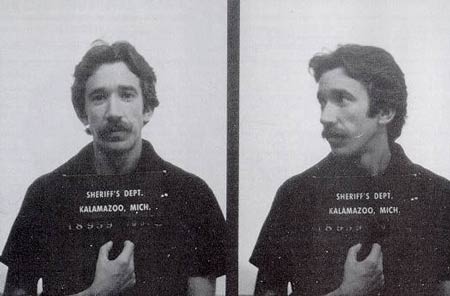
Most people know Tim Allen for playing the goofy dad in the saccharine family sitcom Home Improvement. You may also know him from about a trillion different Christmas movies and cartoon features, because Tim Allen wants to make it absolutely clear that he is the most wholesome man in entertainment. It’s almost like he has a guilty conscience about his past—which he very well might, since, for a time, Tim Allen trafficked and sold cocaine. He wasn’t just some small-time dealer either: He sold thousands of dollars worth of the drug before he was caught in October 1978.
Unbeknownst to Allen, undercover officers had been tracking him for months, waiting to see if he would lead them to his suppliers. Impatience took its course, and officers seized Allen at a Michigan airport with $42,000 worth of cocaine. Facing life in prison, Allen decided to voluntarily give up his contacts in the drug business in exchange for a lighter sentence. It was this deal that allowed him to get out of jail in time to become the famous comedian he’s known as today.
7Chico Marx Was A Womanizer
Chico Marx is an unforgettable icon of early American cinema. In the classic Marx Brothers films he was often paired with the famously silent Harpo, with the two antagonizing Groucho with their stunts. Interestingly, you almost never see Chico with a woman in the entire series of movies. This is strange because there really wasn’t anything that Chico liked more than sex—except perhaps for gambling. He was such a compulsive womanizer that not only did he cheat on his first wife, he actually did it during their honeymoon.
Meanwhile, to say that Chico was fond of gambling is something of an understatement—he actually struggled with his addiction until the day he died. From a very young age, Chico found the the thrill of gambling almost irresistible. When he started making good money in Hollywood, he just ended up losing even more of it. He had a particularly close call when he lost a huge sum to feared gangster Bugsy Siegel and was forced to give him a check he knew would bounce. Luckily for Chico, Siegel was killed before he ever learned that the check was no good. Eventually, Chico’s gambling became so out of hand that his brothers had to put him on an allowance for his own good. He kept right on gambling—but at least he had less money to lose.
6Stravinksy Was An Avowed Fan Of Fascism
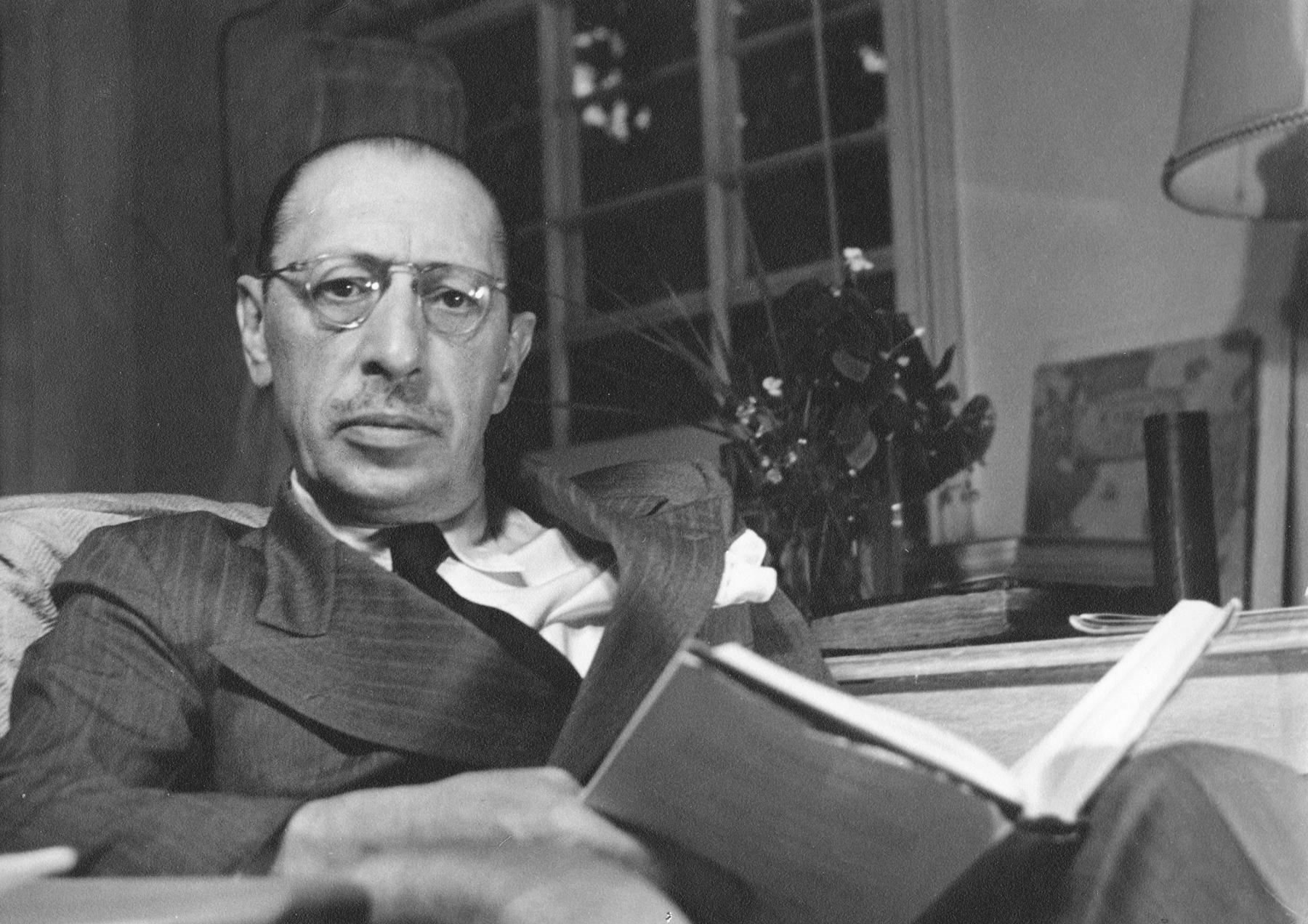
Igor Stravinsky was the celebrated Russian composer behind such classic pieces as The Firebird and the stirring The Rite of Spring. Although Stravinsky’s daring music ruffled feathers—The Rite of Spring caused a riot when it was first performed— his personal life wasn’t particularly controversial. In fact, for the most part, his behavior was hardly noteworthy . . . other than the fact that he was a huge supporter of fascism.
The composer once declared, “I don’t believe anyone venerates Mussolini more than I do.” Scholars of music have been somewhat divided in their responses to this—understandably so, since separating the art from the artist has always been a controversial topic. Some of the defenses for Stravinsky are a little odd, including the suggestion that he simply supported fascism in the hope of making money, while others have claimed that sympathizing with fascists doesn’t necessarily make him one. One theorist has also pointed out that Stravinsky enjoyed disruption in his music—possibly indicating a somewhat sadistic nature.
5Wyatt Earp Really Loved Crime

Wyatt Earp was known as a tough vigilante sheriff of the old West. Years after the famous gun battle at the O.K. Corral, he became famous for his exploits and lauded as a great American folk hero. Earp became a symbol of vigilante justice, doing whatever it took to make sure the bad guys got what they deserved. Popular culture has inundated us with material about Earp, all with the same general theme. Sadly, Earp was a much different person than the biopics would have you believe.
Far from being a model citizen who brought law and order to the West, Earp was a cunning conman and general malcontent who would have serious brushes with the law throughout his entire life. In fact, perhaps his biggest con of all was getting people to believe what a nice guy he was. Some of his specific crimes include horse theft, paying for sex, selling fake gold, refereeing fixed fights, and cheating at cards. What a hero.
4T.E. Lawrence Was An Alleged Masochist
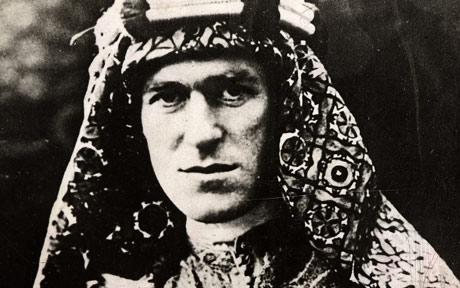
T.E. Lawrence, perhaps better known as Lawrence of Arabia, became a legend in his own lifetime for his daring exploits during the Arab Revolt of 1916–1918, famously chronicled in his book The Seven Pillars of Wisdom. However, some events in the book have been challenged as possibly apocryphal, and since Lawrence had an almost pathological dislike of talking to the press, this has left much of his life shrouded in mystery. To make him an even stranger figure, there is little evidence of T.E. Lawrence ever being romantically or sexually involved with anyone. The closest is an episode in The Seven Pillars where Lawrence claimed to have been captured and sexually abused by Ottoman soldiers. Some historians have argued that there is little evidence that this happened, suggesting that the whole thing may have been some sort of masochistic fantasy, but there isn’t really enough evidence to say either way.
There is, however, compelling evidence that T.E. Lawrence was indeed a masochist who enjoyed being beaten. While in the military, Lawrence apparently paid the majority of his salary to a woman and two men, with the payments usually lasting about a year and only going to one person at a time. Years later, one of the men, John Bruce, claimed that Lawrence had asked him to administer frequent beatings in order to fulfill his masochistic desires. Interestingly, Lawrence always strongly resisted the idea of a movie about his exploits, and certainly would not have been pleased to find that a classic one had been made after his death.
3Fyodor Dostoyevsky’s Crippling Gambling Addiction

Fyodor Dostoyevsky’s contribution to literature can hardly be overestimated. He’s probably best known for his novel Crime and Punishment—the story of a young man who struggles with his own inadequacies and eventually succumbs to the nagging of his conscience. The protagonist, Raskolnikov, is always low on money, depressed, and lives through a haze of disturbed thoughts and imaginings. Dostoyevsky was able to capture this atmosphere of bleak despair so well because it reflected much of his own life.
Dostoyevsky suffered from epilepsy as an adult, but his real struggle was with a serious gambling problem. He would sometimes become convinced that he had a sure way to make it rich, but always ended up losing all of his money. Despite the success of his novels, he was nearly always broke, frequently begging friends for help. His irresponsibility when it came to gambling affected more than just himself—he would frequently abandon his wife for long periods while he went on European pleasure trips. Now, this wouldn’t have been quite as bad if he was at least sending home some money and making sure things were going all right, but as we’ve mentioned, Dostoevsky didn’t really know how to hold onto a kopeck. To make matters worse, he was unfaithful to his wife, with whom he had a bitter and contentious marriage. Still, the best art often comes from adversity—a tortured soul making us think and feel in ways we hadn’t before.
2Louis Pasteur Didn’t Care For Medical Ethics

Louis Pasteur hardly needs an introduction. As well as coming up with the pasteurization process, the French chemist also did groundbreaking work on vaccines and microbiology—a hero of science who undoubtedly made the world a better place. However, in today’s world, Pasteur’s methods would have made it unlikely for him to get any of his work approved.
Pasteur had developed vaccines for rabies and anthrax, but to make sure that they were actually effective on humans, he needed to test them on humans. Typically, this would be preceded by testing them on animals in order to make sure they were safe. Pasteur decided that more than a few animal trials would not be necessary and went ahead with human rabies and anthrax trials regardless. In public, Pasteur claimed to have carried out hundreds of tests to ensure the vaccines were safe, something his private notes later revealed to be a lie.
If that wasn’t bad enough, Pasteur also publicly lied about the makeup of his original anthrax vaccine. He had long boasted that he was developing a vaccine strain weakened by oxygen. However, he had actually repeatedly failed to do so. When challenged to prove his claims, Pasteur secretly used a vaccine weakened by antiseptics, a technique stolen from a rival of his. Pasteur did eventually develop an oxygen-weakened vaccine, but not until long after his initial public trials.
1John Paul Jones Had Mutiny Problems

John Paul Jones was one of the most important figures in the American Revolution, synonymous with daring and bravery, and considered the father of the United States Navy. But throughout his time as a ship’s captain, Jones was known for being exceptionally tough. In one case he had a mutinous crew member flogged a dozen times. The man died of a fever soon afterward and his father tried to sue Jones, claiming that the flogging had caused his death.
Jones managed to escape those charges but later ended up with yet another mutiny on his hands. It could hardly be blamed on anyone but himself, since Jones had suddenly decided not to pay his crew at Christmas as expected. Instead, he decided to use the money to reinvest in cargo to sell in London, the profits from which would then be shared with the crew. Unfortunately for Jones, the crew themselves were unhappy with this sudden change of plans and mutinied instead. Jones ended up defending himself by killing a mutineer with a sword. In this case, Jones didn’t attempt to defend himself in court—he simply fled the area completely.
You can follow Greg on Twitter if you want.

